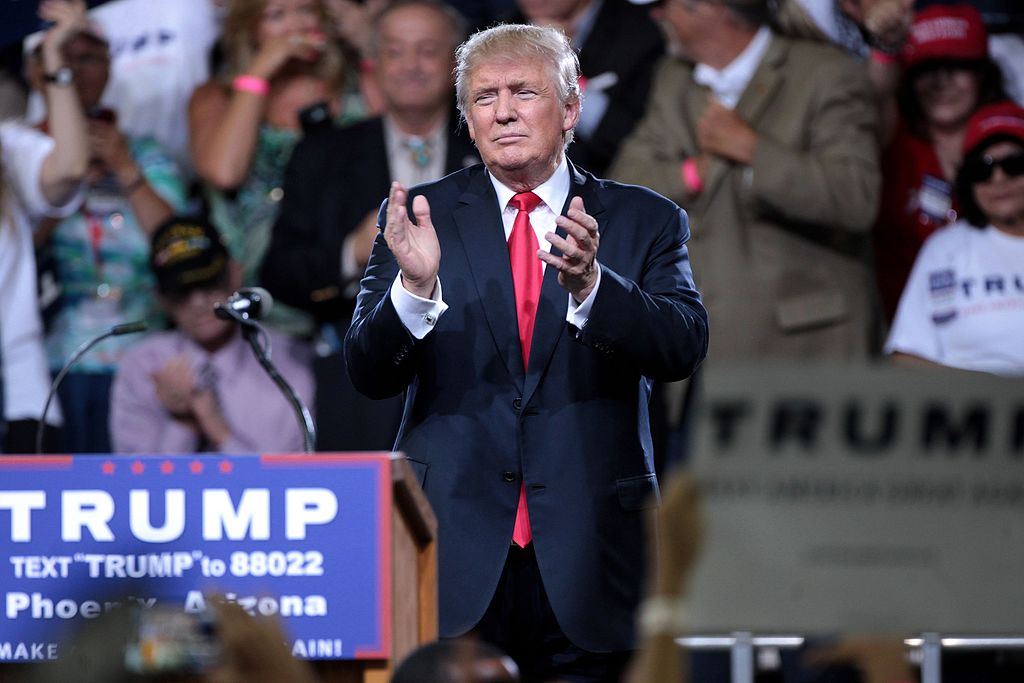In a statement stirring controversy across the political spectrum, former President Donald Trump suggested he might grant pardons to individuals convicted in connection with the January 6 Capitol riot “maybe in the first nine minutes” of his potential second term. Trump’s remarks, delivered at a campaign rally in Des Moines, Iowa, drew widespread reactions, with supporters hailing his commitment to addressing perceived injustices and critics warning of the implications for democratic accountability.
Trump did not provide specifics about who might be pardoned but reiterated his long-standing assertion that many January 6 participants were “treated unfairly” by federal prosecutors. Legal experts, however, contend that such an action could embolden anti-democratic behavior, further polarizing an already divided nation.
Widespread Reactions from Supporters and Critics
Trump’s comments immediately ignited fierce debates online, with reactions reflecting the nation’s deepening political divides. While his base applauded his remarks as a stand against government overreach, opponents expressed alarm over the potential repercussions.
Here’s how netizens reacted on social media:
- @PatriotJoeUSA: “Finally! Someone standing up for the patriots who fought for election integrity. Trump 2025 can’t come soon enough!”
- @JusticeMatters: “Nine minutes? That’s all it takes for Trump to undermine the rule of law. Unbelievable.”
- @MAGAForever2025: “Trump is a hero for even thinking about this. The real criminals are in Congress, not jail!”
- @DemocracyWins: “This is not just reckless; it’s dangerous. Pardoning insurrectionists sends a terrifying message.”
- @TruthAndOrder: “Only Trump has the guts to fix the mess Biden and his DOJ created.”
- @ResistNow: “If Trump does this, he’s giving the green light to extremists. America deserves better leadership.”
Legal and Political Implications
Legal analysts warn that Trump’s proposed pardons could set a dangerous precedent, potentially undermining the justice system and emboldening extremist groups. Experts argue that pardoning individuals involved in the January 6 events would signal a tacit approval of the actions that led to one of the darkest days in American democracy.
However, Trump’s defenders argue that the move would highlight his commitment to “draining the swamp” and exposing alleged governmental overreach. They also point to past presidential pardons, including those by Bill Clinton and Barack Obama, to assert that such actions fall within the normal scope of executive power.
The timing of Trump’s statement, as he campaigns for re-election, raises questions about whether the comments are a political strategy to energize his base or a genuine commitment to addressing what he calls “gross injustices.”
What Comes Next?
As Trump continues to dominate the Republican primary, his statements about January 6 pardons have become a focal point for both his supporters and opponents. While his base remains steadfast, critics warn that such rhetoric could deepen the nation’s divisions and further erode trust in democratic institutions.
Political analysts suggest that Trump’s comments are part of a broader strategy to reclaim his narrative on the January 6 events. Whether this approach helps or hinders his campaign remains to be seen.



 Trump Launches Operation Epic Fury: U.S. Strikes on Iran Mark High-Risk Shift in Middle East
Trump Launches Operation Epic Fury: U.S. Strikes on Iran Mark High-Risk Shift in Middle East  Argentina Tax Reform 2026: President Javier Milei Pushes Lower Taxes and Structural Changes
Argentina Tax Reform 2026: President Javier Milei Pushes Lower Taxes and Structural Changes  Iran Supreme Leader Ayatollah Ali Khamenei Killed in Israeli, U.S. Strikes: Reuters
Iran Supreme Leader Ayatollah Ali Khamenei Killed in Israeli, U.S. Strikes: Reuters  U.S. Lawmakers Question Trump’s Iran Strategy After Joint U.S.-Israeli Strikes
U.S. Lawmakers Question Trump’s Iran Strategy After Joint U.S.-Israeli Strikes  UK Accepts U.S. Request to Use British Bases for Defensive Strikes on Iranian Missiles
UK Accepts U.S. Request to Use British Bases for Defensive Strikes on Iranian Missiles  Middle East Conflict Escalates After Khamenei’s Death as U.S., Israel and Iran Exchange Strikes
Middle East Conflict Escalates After Khamenei’s Death as U.S., Israel and Iran Exchange Strikes  Israel Declares State of Emergency as Iran Launches Missile Attacks
Israel Declares State of Emergency as Iran Launches Missile Attacks  Marco Rubio to Brief Congress After U.S.-Israeli Strikes on Iran
Marco Rubio to Brief Congress After U.S.-Israeli Strikes on Iran  Trump Announces U.S. Strikes on Iran Navy as Conflict Escalates
Trump Announces U.S. Strikes on Iran Navy as Conflict Escalates  Netanyahu Suggests Iran’s Supreme Leader Khamenei May Have Been Killed in Israeli-U.S. Strikes
Netanyahu Suggests Iran’s Supreme Leader Khamenei May Have Been Killed in Israeli-U.S. Strikes  Suspected Drone Strike Hits RAF Akrotiri Base in Cyprus, Causing Limited Damage
Suspected Drone Strike Hits RAF Akrotiri Base in Cyprus, Causing Limited Damage  U.S.-Israel Strike on Iran Escalates Middle East Conflict, Trump Claims Khamenei Killed
U.S.-Israel Strike on Iran Escalates Middle East Conflict, Trump Claims Khamenei Killed  AI is already creeping into election campaigns. NZ’s rules aren’t ready
AI is already creeping into election campaigns. NZ’s rules aren’t ready  Does international law still matter? The strike on the girls’ school in Iran shows why we need it
Does international law still matter? The strike on the girls’ school in Iran shows why we need it  Trump to Address Nation as U.S. Launches Strikes in Iran, Axios Reports
Trump to Address Nation as U.S. Launches Strikes in Iran, Axios Reports  Pentagon Leaders Monitor U.S. Iran Operation from Mar-a-Lago
Pentagon Leaders Monitor U.S. Iran Operation from Mar-a-Lago  Why did Iran bomb Dubai? A Middle East expert explains the regional alliances at play
Why did Iran bomb Dubai? A Middle East expert explains the regional alliances at play 
































